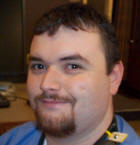1. What makes your program different from
other programs, or what made you choose your program?
Our program compared to others I've seen is profoundly
clinically strong, while maintaining academic possibilities.
Our program also is very laid back and has a reputation of
having good resident relations. We are a regional trauma
center, burn center, and have a very busy helicopter service.
2. Are there any major upcoming changes
to your program?
We've dropped the floor months completely (peds, medicine).
We've added rotations in toxicology.
3. Is there anything you would change
about your program if you could?
I would change peoples' misperceptions about Cleveland.
4. How much are you responsible for blood draws, putting in
IVs, etc.?
Never for IVs although if you're a decent person, you should be
trying on a crashing patient while people are on other limbs.
We're not "responsible" for peripheral draws but on difficult
stickpatients, I've had to fem stick people for blood, etc. For
awhile, "difficult sticks" would get turfed to us because the
MDs had the potential to use U/S for peripheral IVs. Now,
nursing are doing U/S IVs.
5. Do you learn mostly from attendings,
other residents, or textbooks? Does this vary when you do
off-service rotations?
I learn mostly from
the patients. We have 30+ attendings. The majority are good
to very good. Several are outstanding. There are a couple
people who just come in and move the meat. Still, you don't
realize what these interactions teach you until late in
residency.
6. How does EMed rank in your
hospital's hierarchy?
Highest
7. What are the
perks that your school provides (PDAs, textbooks, conference
fees, meal tickets, etc.)?
Two major
texts. Conference paid to ACEP third year, any conference where
you present research. You accumulate meal money each year.
8. How do you
rate your rotations outside of the emergency department?
The
ICU, anesthesia rotations are excellent. We also do an U/S
rotation.
9. What's the
best elective you've done?
I did a
mixed one: forensic pathology, oral surgery
10. How much does
your program focus on research?
Moderate. Not do or die, not like a total community program
either.
11. What do you
love and hate most about the city you're in?
Cleveland is just fine. I hate when people assume things about
it.
12. Please
describe your typical month in terms of work hours and days off.
The RRC
is fairly stringent about this. 20 shifts for interns, 19 for
second years 18 for third years.
13. How much time
do you spend off-duty with the other residents?
A lot.
14. Do you have
any international experience?
Potential during electives, not formalized yet.
15. What are your
plans after residency?
Academics.
16. How prepared
do you feel?
Extremely.
17. Do you have
any advice for current applicants, or is there anything you wish
you'd known when you were applying?
Don't
do complicated decision analyses. They're worthless. You need
to satisfy three things:
1. You have to be able to live in the place 3-4 years.
2. You have to have your spouse live there too... without
divorcing you. (Have him/her cross places off the list with "no
questions asked.")
3. You have to like the people you work with.
and that's IT. It doesn't matter if you're at the place with
the best "cumulative" score on your decision tree; if you hate
the place you will do POORLY.
